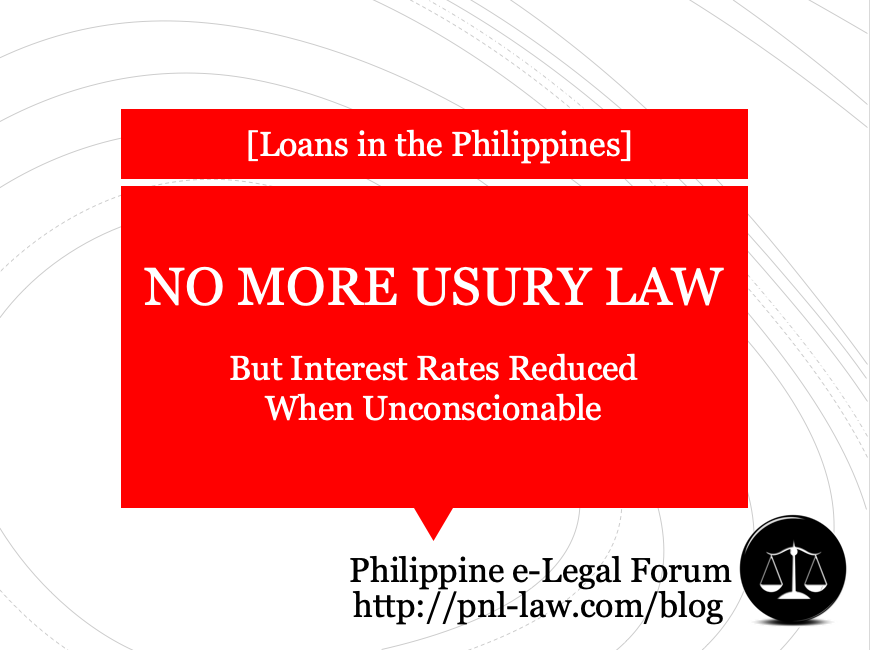With the suspension of the Usury Law and the removal of interest ceilings, the parties are generally free to stipulate the interest rates to be imposed on monetary obligations. As a rule, the interest rate agreed by the creditor and the debtor is binding upon them. This rule, however, is not absolute.

In a recent case, the SC again dealt with the validity of interest agreed by the parties, stating that stipulated interest rates are illegal if they are unconscionable and the Court is allowed to temper interest rates when necessary. In exercising this vested power to determine what is iniquitous and unconscionable, the Court must consider the circumstances of each case. What may be iniquitous and unconscionable in one case, may be just in another.
[See also Excessive and Unconscionable Interest Rates in the Philippines]
In that case, the SC reduced the interest rate from 18% to 12% per annum, noting, among others, that the amount involved has ballooned to an outrageous amount four times the principal debt.
Indeed, there is no hard and fast rule to determne the reasonableness of interest rates. Stipulated interest rates of 21%, 23% and 24% per annum had been sustained in certain cases.
On the other hand, there are plenty of cases when the SC equitably reduced the stipulated interest rates; for instance, from 18% to 10% per annum. The SC also voided the stipulated interest of 5.5% per month (or 66% per annum), for being “excessive, iniquitous, unconscionable and exorbitant, hence, contrary to morals (“contra bonos mores”), if not against the law”. The same is true with cases involving 36% per annum, 6% per month (or 72% per annum), and 10% and 8% per month. In these instances, the SC imposed the legal interest of 12%.
Just to be clear, “legal interest” doesn’t mean that anything beyond 12% is “illegal”. It simply means that in a loan or forbearance of money, the interest due should be that stipulated in writing, and in the absence thereof, the rate shall be 12% per annum.
——————–
Sources: Trade & Investment Development Corporation of the Philippines vs. Roblett Industrial Construction Corporation (G.R. No. 139290, 9 May 2006); Development Bank of the Philippines vs. Court of Appeal; Garcia vs. Court of Appeals; Medel vs. Court of Appeals; Security Bank and Trust Company vs. RTC Makati; Spouses Solangon vs. Salazar; Cuaton vs. Salud; Ruiz vs. CA; Eastern Shipping vs. Court of Appeals, G.R. No. 97412 July 12, 1994.
- Twin-Notice Rule and Procedural Requirements in Employment Termination Proceedings - June 3, 2020
- When Travel Pass is Needed for Interzonal Travel during Community Quarantine - June 1, 2020
- Can Companies Compel Employees to Work during the General Community Quarantine (GCQ) and Impose Disciplinary Sanctions - May 29, 2020

Pingback: Excessive and Unconscionable Interest Rates in the Philippines » Philippine e-Legal Forum